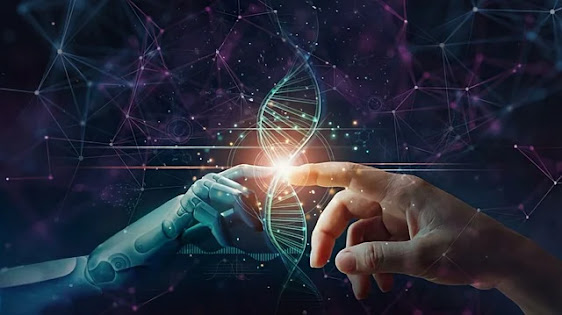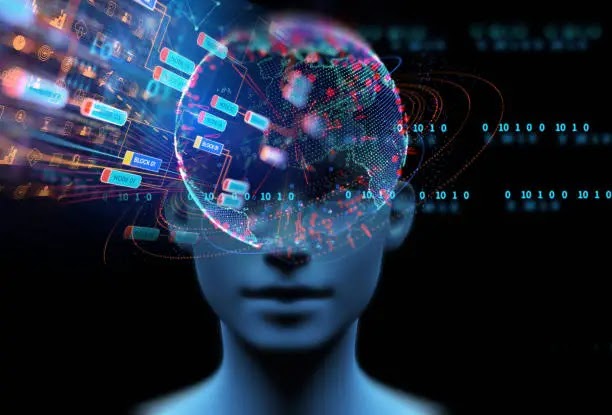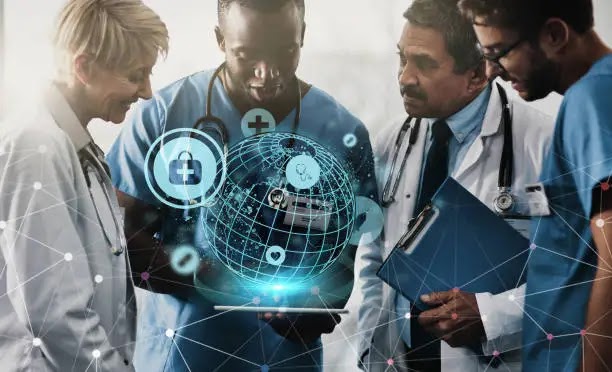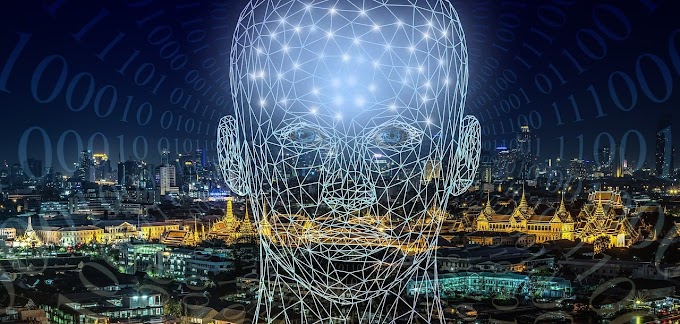Future of Humans(As a expert view)
Artificial Intelligence (AI) has rapidly emerged as a transformative force in today's world, promising to reshape the very fabric of our existence. As we stand at the intersection of technology and humanity, it's imperative to delve into the profound impact AI will have on our future. From ethical dilemmas to its influence on healthcare, education, and even our economy, this article navigates the complex relationship between AI and humanity.
AI's Impact on the Future of Humans:
Artificial Intelligence (AI) is poised to transform our world in unprecedented ways. It augments human potential, enabling us to tackle complex problems and make more informed decisions. In healthcare, AI assists in disease diagnosis and treatment planning. In education, it personalizes learning, enhancing student outcomes. Self-driving cars powered by AI promise safer, more efficient transportation. Yet, ethical considerations and the need for responsible AI development are crucial. The future of humans will be shaped by our ability to harness AI's capabilities for the betterment of society while preserving what makes us uniquely human – empathy, creativity, and ingenuity.
Will Artificial Intelligence Replace Humans in the Future?
- Augmentation, Not Replacement: AI is set to complement, not replace, humans. It will take on routine and repetitive tasks, allowing humans to focus on creative and complex problem-solving.
- Human Skills Are Invaluable: While AI excels at data analysis, it lacks the emotional and ethical judgment that humans possess. Skills like empathy, creativity, and moral decision-making remain uniquely human.
- Job Evolution: Some jobs may change, but AI will also create new roles. As AI takes over repetitive tasks, humans can upskill for more fulfilling and creative positions.
- Shared Responsibility: The future relationship between AI and humans depends on responsible development and ethical deployment to ensure AI benefits, rather than threatens, our species.
In summary, AI is a powerful tool that will reshape work but not replace the essence of humanity.
Ethical Considerations:
In the journey towards an AI-augmented future, ethics play a pivotal role. As AI becomes an integral part of our lives, concerns about privacy, bias in algorithms, and the potential misuse of AI have come to the forefront. Safeguarding individual rights and values is paramount. Striking a balance between technological advancement and ethical responsibility is the cornerstone of shaping a future where AI enriches human life without compromising fundamental principles. Ethical guidelines and regulations will be crucial in ensuring that AI enhances human existence while upholding the core values that define our society.
Artificial Intelligence and Healthcare Industry
AI is revolutionizing healthcare, enhancing diagnostics, treatment, and patient care. Through data analysis and machine learning, AI can identify patterns and anomalies in medical records, aiding in early disease detection. It assists in drug discovery, accelerating research and development. Telemedicine, powered by AI, extends healthcare access to remote areas. Robotics and automation optimize surgical procedures, improving precision. While AI streamlines administrative tasks, healthcare professionals can focus more on patient interactions. Ethical considerations and data security are vital, but the potential for AI to transform healthcare is immense, promising better health outcomes and increased accessibility for all.
Impact on Human Intelligence
Artificial Intelligence is revolutionizing how we harness intelligence. AI complements human cognitive abilities by processing vast datasets at incredible speeds. It provides us with insights, augments decision-making, and facilitates problem-solving. In education, AI personalizes learning, adapting to individual needs. However, it's vital to remember that while AI enhances our analytical intelligence, it can't replicate the depth and richness of human emotional and social intelligence. Thus, the future lies in a harmonious partnership, where AI empowers our intellectual capacities while humans continue to provide the irreplaceable qualities of empathy, creativity, and moral judgment that define our unique brand of intelligence.
How AI Changes Human Life
Personalized Recommendations: AI-powered algorithms analyze user behavior to provide tailored content, whether it's movie recommendations, shopping suggestions, or news articles, enhancing user experiences.
Smarter Homes: AI-driven smart home devices manage tasks like temperature control, lighting, and security, simplifying daily life and increasing energy efficiency.
Healthcare Revolution: AI aids in medical diagnoses, drug discovery, and telemedicine, expanding access to quality healthcare and improving patient outcomes.
Education Enhancement: Personalized learning through AI adapts to individual student needs, making education more accessible and effective.
Transportation Advancements: Self-driving cars and AI-driven traffic management systems promise safer, more efficient travel, reducing accidents and congestion.
Creative Assistance: AI tools assist in generating art, music, and literature, serving as valuable aids to human creativity.
Streamlined Workflows: AI automates repetitive tasks, allowing professionals to focus on complex problem-solving and innovation.
Efficient Communication: Language translation and chatbots powered by AI break down language barriers and improve customer service.
Accessible Information: AI-driven search engines and virtual assistants provide quick access to information, streamlining research and decision-making processes.
Environmental Impact: AI helps monitor and mitigate environmental issues, contributing to sustainability and the preservation of the planet.
In summary, AI's transformative power is felt across various aspects of human life, making it more convenient, efficient, and personalized.
AI and Education sector
In the realm of education, Artificial Intelligence (AI) is revolutionizing the learning landscape. AI-powered systems can personalize education, adapting content to individual student needs. This not only enhances understanding but also accelerates the learning process. Moreover, AI-driven tools help educators by automating administrative tasks, allowing them to focus on teaching and mentoring. Beyond the classroom, AI is also making quality education more accessible, reaching remote areas through online platforms. As AI continues to evolve, it holds the potential to bridge educational gaps, ensuring that the future of humans is marked by improved access to knowledge and enhanced learning experiences.
AI and Transportation industry
Social and Economic Impact
- Job Transformation: AI will reshape job roles across various industries, requiring new skill sets and competencies as routine tasks become automated.
- Labor Market Shifts: The workforce will adapt, emphasizing creativity, critical thinking, and emotional intelligence, leading to a transition from routine work to value-added roles.
- Economic Growth: AI's efficiency improvements will boost productivity, potentially increasing economic growth and competitiveness on a global scale.
- Income Inequality: Managing the transition equitably is crucial to avoid exacerbating income inequality, as some individuals may be left behind in the changing job landscape.
- Technological Unemployment: The threat of job displacement must be mitigated through retraining programs and initiatives to ensure a smooth societal transition.
At the END
In contemplating the future of humans in the era of Artificial Intelligence, it's clear that AI is a tool, not a replacement. AI holds immense promise to enhance our lives, from healthcare and education to transportation and creativity. Ethical considerations are paramount, guiding responsible AI integration. The human touch, with its creativity, empathy, and complex problem-solving, remains irreplaceable. AI, when harnessed judiciously, can elevate human potential. The future hinges on our ability to adapt, innovate, and ensure that AI serves humanity's best interests. As we stand at this intersection of technology and humanity, we must embrace AI as a partner, not a substitute, in shaping a brighter future.
(Thankyou so much for your valuable time)








